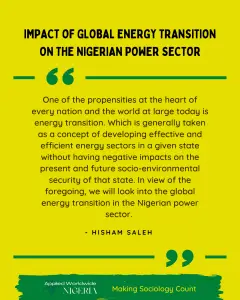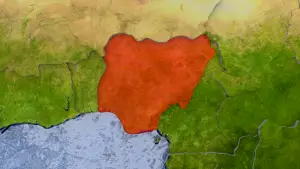The concept of Sustainable Development emerged in response to the forces of globalization that triggered the total and comprehensive change in the social, economic, and political processes of the world. However, as a result of cumulative problems of environmental, social, and economic development, sustainable development became a topical issue in the 1990s. To understand the concept of sustainable development clearly, it is imperative to know what sustainability is. We will take a critical look at the SDGs in the 3rd world countries below.
Sustainability, extensively, is the capability for species to endure over time. For mankind, this encompasses environmental, economic, and social practices and the concept of responsibly utilizing natural resources. On the other hand, the term “Sustainable Development” dated back to 1983 when the United Nations Assembly inaugurated the World Commission on Environment and Development (WCED). And assigned it the responsibility of designing “A global program for change”.
In its report to the UN titled “Our Common Future” in 1987, the commission defined sustainable development as “Development that meets the needs of the present without compromising the ability of future generations to meet their own needs”. Initially, they come up with what is known as “Agenda 21” for global transformation which lasted from 1991-2000. In 2001, this agenda 21 was charged into Millennium Development Goals (MDGs) which lasted from 2001 to 2015. When the global communities gathered at the United Nations Assembly and come up with what is now known as 17 Sustainable Development Goals (SDGs).
Sustainable Development
As outlined by United Nations, the 17 sustainable development goals in no particular order include
- No Poverty
- Zero hunger
- Good health and well-being
- Quality education
- Gender equality
- Clean water and sanitation
- Affordable and clean energy
- Decent work and economic growth
- Industry, Innovation, and Infrastructure
- Reduced inequality
- Sustainable cities and communities
- Responsible consumption and production
- Climate action
- Life on land
- Life below water
- Peace, justice, and strong institutions
- Partnership for the goals
The SDGs in the 3rd World Countries
Sustainable development revolves around the economy, social well-being, and the environment. Therefore, sustainable development is a blueprint to attain better living conditions and a sustainable future for all. It addresses the challenges faced by international communities, especially environmental degradation, inequality, poverty, peace, and justice.
On the other hand, Third World Countries (TWC) are developing and underdeveloped countries mostly located in Africa, Asia, and North America. The enactment of sustainable development may appear to be simple when written on paper, however, in reality, the concept seems to be difficult if not impossible to be realized.
This resulted in two different views on whether sustainable development is real or a myth. Let us take for example goal number one which is no poverty. This goal is aimed at eradicating extreme poverty for all people across the globe by 2030. This is one of the pivotal goals of Sustainable Development or agenda 2030. From an operational perspective, achieving no hunger globally is very difficult if not impossible.
Industry, Innovation, and Infrastructure
Likewise, goal 9 which is industries, innovation, and infrastructure, is aimed at building resilient infrastructure, promoting sustainable industrialization, and fostering innovation for the entire global communities. However, in this case, the world still has a long way to go to fully tap this potential.
Reliable infrastructure and even a lack of policies in third-world countries that have to do with innovation, industries, and infrastructure are absent. Least developed countries, in particular, need to accelerate the development of their manufacturing sector if they are to meet the 2030 target and scale up investment in scientific research and innovation.
The question we need to ask is, based on the lopsided global development between the center and the periphery, are sustainable development goals achievable especially in Third World Countries?
Scholars like Gorbanyov argued that, although the concept of sustainable development is noble and humane, he, however, believes that in the modern world, the concept is attainable but not in the nearest future. In addition, Sustainable Development Goals Report, (2022) revealed that many countries such as Finland, Denmark, United Kingdom achieved more than 80% of sustainable development. This means that, for a long time, sustainable development is achievable in developed countries like the United States of America and the United Kingdom because even now they are on track to achieving the goals.
The Myth of Sustainable Development
In contrast, environmental and Sustainable Development scholar Lovelock (2008) believed that sustainable development is a myth. He argued that over centuries humans have manipulated the planet without estimating the penalty, and now the living Earth, is fighting back. As the opposing icecaps decrease and global warming rises, we reach the point of no recovery. He, therefore, concluded that sustainable development is no longer possible, what we can only have maybe is a ‘sustainable retreat’.
This means that Lovelock believes that, sustainable development is a myth and cannot be achieved, the only option that remains to mankind according to him is to pull back or change the way he exploits the environment for present and future generations. Specifically, looking at the asymmetrical relationship between developed and Third World Countries, rapid and rapacious tendencies of corruption.
The dilapidated institutions, insecurity, high rate of unemployment, lack of quality education and sound health care system, lack of creativity and innovation, and reckless exploitation of the environment and natural resources, among others, can sustainable development be archived?
Achieving Sustainable Development
The 2022 report on the overall score of the progress of UN member states toward achieving SDGs disclosed that most Third World Countries like Chadi, Sudan, and Andorra, are yet to achieve 50% of sustainable development. In fact, least-developed countries such as Equatorial Guinea, Dominica, Libya, and Tonga, amongst others, are not counted among those that are making a concrete effort toward implementing the SDGs.
The continuous exploitation and manipulation of the Third World Countries by global imperialists in all ramifications of social, economic, and political affairs. As well as the political turmoil in Africa and the Middle East, and the raising of global instability, including the recent financial crisis. And the problems caused by changing climate conditions have brought the achieving SDGs to a halt. Therefore, until most of these bottlenecks are addressed, the achievement of the SDGs in the 3rd world countries will perpetually remain unrealistic.
Final Thoughts on Sustainable Development in the 3rd World
Conclusively, the SDGs report that revealed many countries such as Finland, Denmark, the United Kingdom, United States of America, achieved more than 80% of sustainable development is a clear demonstration that sustainable development is not a myth. But rather a REALITY that can be achieved in a long-term period.
Nevertheless, in Third World Countries, sustainable development goals have been bedeviled by many challenges especially the existence of asymmetrical relationships between them and the developed countries.
Inadequate financial resources, lack of technological know-how, insecurity, corruption, and
natural disasters like earthquakes, and tsunamis. Therefore, until most of these bottlenecks are addressed, the achievement of sustainable development in the TWC will perpetually remain unrealistic.
Impact of Global Energy Transition on the Nigerian Power Sector






